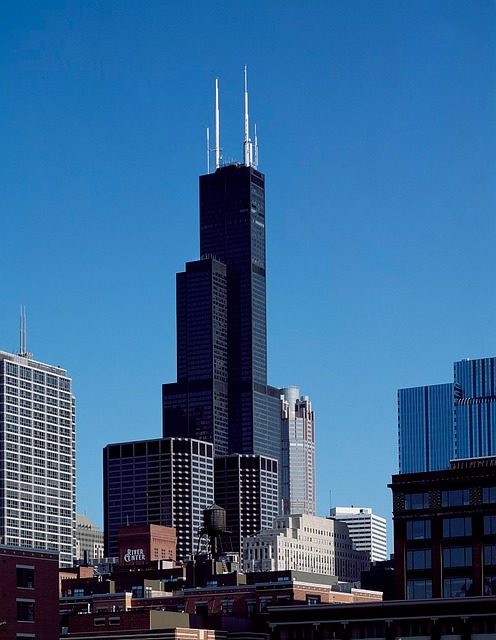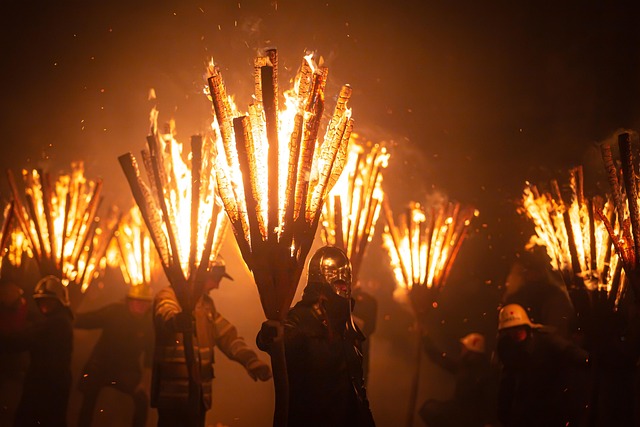Selling fire-damaged homes in Chicago presents a unique blend of challenges and opportunities due to the city's stringent safety regulations, thriving real estate market, and diverse neighborhoods. Homeowners must navigate complex legal considerations, including building code compliance, hazardous material removal, and mandatory disclosure of fire damage. The process involves obtaining inspection certificates from the Chicago Fire Department, ensuring structural integrity and transparency for buyers. Financial aspects, such as insurance coverage and city incentives, play a crucial role in offsetting repair costs. Ultimately, selling these properties contributes to Chicago's neighborhood revitalization while offering renovation opportunities for savvy buyers.
Chicago’s housing market is governed by a unique set of regulations, particularly when it comes to fire-damaged properties. Understanding these legal considerations is crucial for both property owners and real estate professionals navigating the city’s landscape. This comprehensive guide delves into various aspects, from safety standards and inspection procedures to financial incentives, community impact, and selling fire-damaged homes in Chicago. By exploring these topics, we aim to equip readers with valuable insights into this specialized niche within the local real estate sector.
- Understanding Chicago's Housing Market: A Quick Overview
- Fire Damage and Real Estate: Legal Considerations in Chicago
- Regulations for Selling Fire-Damaged Properties
- Safety Standards and Inspection Procedures
- Financial Aspects: Insurance, Reparations, and Incentives
- Community Impact and Neighborhood Revitalization
Understanding Chicago's Housing Market: A Quick Overview
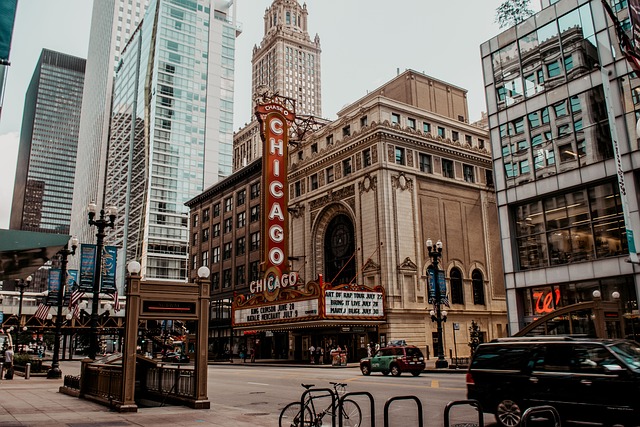
Chicago, known for its vibrant architecture and diverse neighborhoods, presents a unique landscape when it comes to the housing market. Understanding this market is essential, especially for those looking to sell fire-damaged homes in the city. The Chicago real estate scene is characterized by high demand due to its thriving economy and cultural attractions, attracting buyers from across the country and around the world. This dynamic environment presents both opportunities and challenges for sellers.
One notable segment of this market involves the sale of fire-damaged properties. While these homes may require significant repairs, Chicago’s robust real estate community offers various avenues for owners to navigate the process successfully. Many buyers are drawn to the city’s potential for renovation and restoration, seeing damaged properties as opportunities to create their dream spaces. Therefore, selling fire-damaged homes in Chicago can be a viable option, provided sellers are prepared to showcase the property’s underlying value and the possibilities it holds.
Fire Damage and Real Estate: Legal Considerations in Chicago
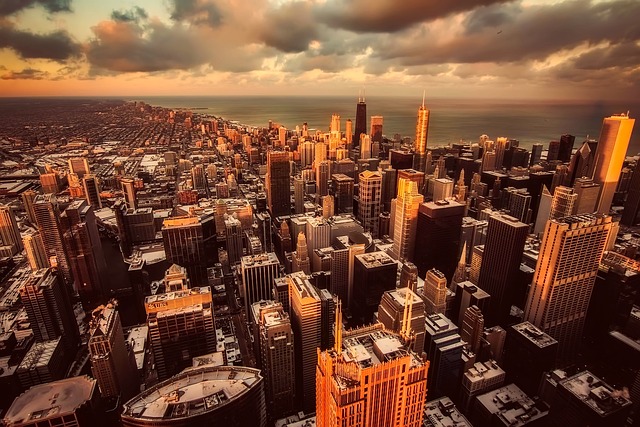
In Chicago, the process of selling fire-damaged homes is subject to specific legal considerations. After a fire, property owners must navigate intricate regulations to ensure compliance before putting their property on the market. The city’s strict building codes and safety standards are designed to protect residents and potential buyers alike, but they can also pose challenges for those looking to sell. These regulations cover everything from structural integrity assessments to hazardous material removal, especially if asbestos or lead paint was involved in the fire.
Real estate agents and sellers must be aware of these legal requirements to avoid delays or financial penalties. Chicago’s building department plays a crucial role in inspecting properties and issuing permits for repairs and renovations. Sellers must disclose any known damage caused by fire, even if it has been repaired, to potential buyers, as this information is essential for informed decision-making. Understanding the local laws surrounding selling fire-damaged homes in Chicago is paramount for a smooth transaction process.
Regulations for Selling Fire-Damaged Properties
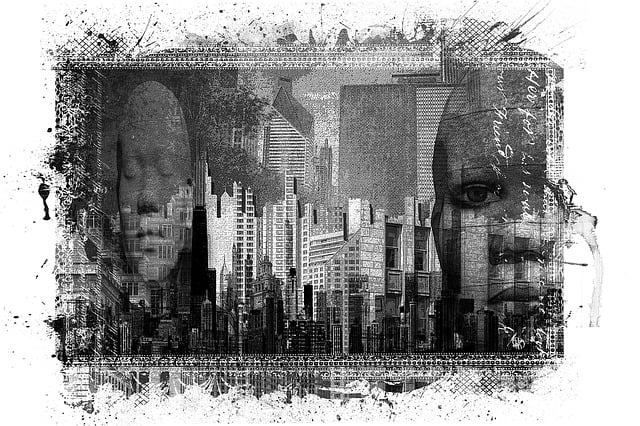
In Chicago, selling fire-damaged properties is subject to specific regulations designed to ensure safety and fair practices. These regulations are crucial for both homeowners looking to sell and prospective buyers navigating the market. After a fire, property owners must first obtain an inspection certificate from the Chicago Fire Department, confirming that the structure is safe for occupancy and sale. This process involves thorough assessments of structural integrity, electrical systems, and potential hazards.
Additionally, real estate agents and buyers should be aware that selling fire-damaged homes in Chicago may require disclosure of the incident and its impact. Homeowners are often mandated to provide detailed information about any repairs or renovations made to address fire damage, ensuring transparency throughout the sales process. This helps buyers make informed decisions, especially regarding potential costs for repair or remediation.
Safety Standards and Inspection Procedures
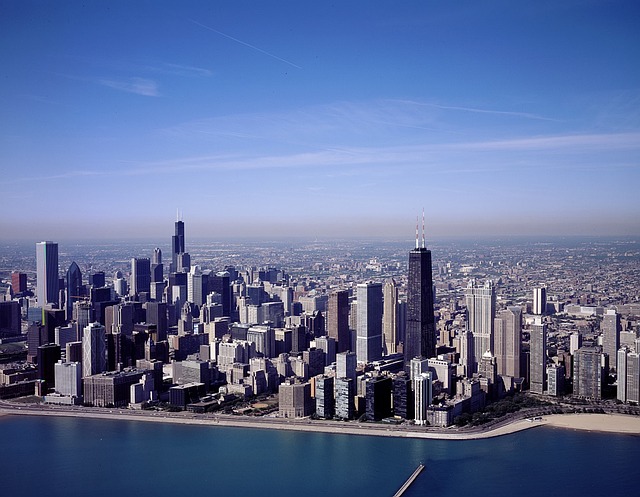
In Chicago, safety standards for housing are strictly regulated to ensure the well-being of residents, especially when dealing with fire-damaged properties. When selling fire damaged homes Chicago, it’s crucial that any structural repairs meet these guidelines, focusing on preventing further hazards and ensuring the integrity of the building. The city mandates thorough inspections to verify that safety measures are in place, such as updated electrical systems, fireproofing, and smoke detectors, all essential aspects for potential homebuyers.
These inspection procedures involve meticulous evaluations by certified professionals who assess the extent of fire damage and subsequent repairs. They check for potential hazards like unstable structures, hazardous materials, and inadequate ventilation, among other safety concerns. This process is vital in providing transparency to buyers, assuring them that their future home meets the highest safety standards, and promoting trust in the real estate market for selling fire damaged homes Chicago.
Financial Aspects: Insurance, Reparations, and Incentives

When it comes to selling fire-damaged homes in Chicago, understanding the financial aspects is crucial. Homeowners faced with the task of repairing or replacing their properties after a fire incident need to consider several key factors. One such aspect is insurance coverage, which can vary widely between policies and may not always fully cover the costs of rebuilding. It’s essential for Chicago residents to review their insurance policies carefully, especially when dealing with fire damage, to understand what is covered and what may require additional financial resources.
Incentives and repairs play a significant role in this process as well. The city of Chicago offers various programs and grants aimed at helping homeowners afford the costs associated with repairing or rebuilding after a fire. These incentives can include financial assistance for structural repairs, improvements to fire safety features, and even rebates for energy-efficient upgrades. Understanding these opportunities can help offset the financial burden, making it easier for Chicagoans to navigate the process of selling their fire-damaged homes.
Community Impact and Neighborhood Revitalization

Chicago’s housing regulations play a pivotal role in shaping the city’s landscape and its communities. One significant aspect is the emphasis on community impact and neighborhood revitalization, especially when it comes to selling fire-damaged homes. These regulations are designed to ensure that any reconstruction or redevelopment respects the existing character of the neighborhood while enhancing its overall well-being.
By implementing strict standards for rebuilding after a fire, Chicago aims to preserve the historic integrity of areas prone to such incidents. This approach not only prevents the rapid proliferation of generic, modern structures but also fosters a sense of community and continuity. Homeowners and investors interested in selling fire-damaged properties in Chicago must adhere to these regulations, contributing to the city’s revitalized and vibrant neighborhoods.
Chicago’s housing regulations, particularly around selling fire-damaged properties, are designed to ensure safety, maintain property values, and foster neighborhood revitalization. These guidelines, from legal considerations to inspection procedures and financial incentives, create a structured environment for both homeowners and buyers when navigating the sale of fire-affected properties in Chicago. Understanding these regulations is crucial for anyone looking to buy or sell fire-damaged homes in this vibrant city, helping to ensure a smooth transition while contributing to the community’s ongoing revitalization.
